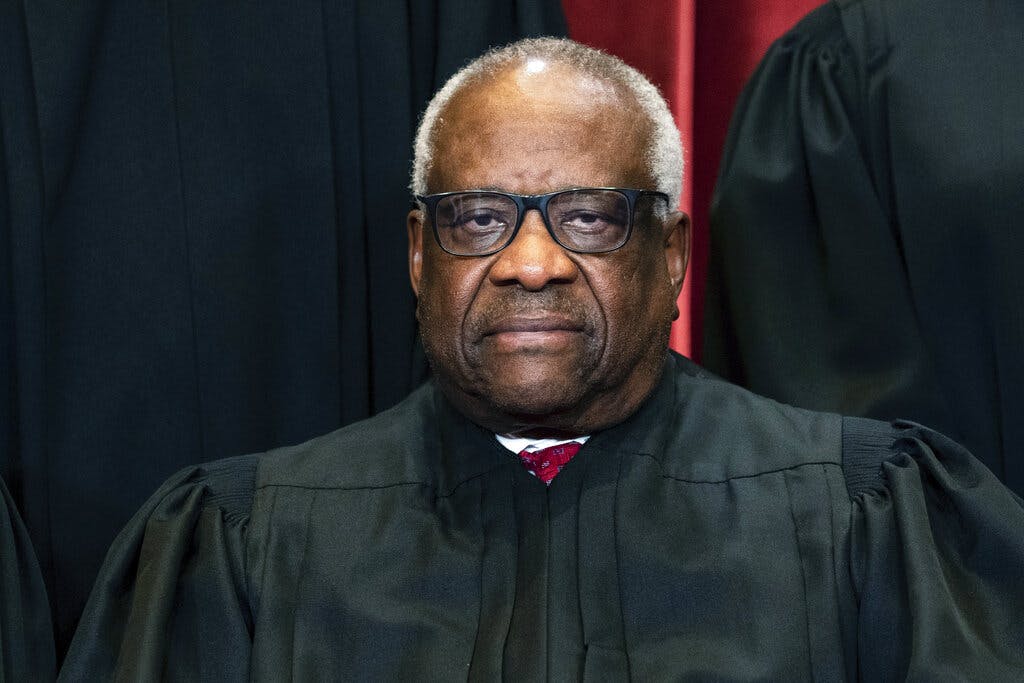One Million Americans v. Clarence Thomas
It’s hard to imagine that a million signatures on a MoveOn.org petition will faze Justice Thomas, and not simply because 329 million Americans failed to sign the petition.

A petition to remove Justice Clarence Thomas from the Supreme Court has reached one million signatures: Approximately one out of every 330 Americans has signed it. The roster of signatories, in all their multitudes, demands that Justice Thomas step down because of his concurring opinion in Dobbs v. Jackson Women’s Health, wherein he joined the majority in striking down Roe v. Wade and indicated that he would go further still.
That next frontier is, as we have indicated, one worth stretching for: The removal from the 14th Amendment of the constitutional contrivance of substantive due process; and to that core clause the restoration of some semblance of its plain meaning. That puts Justice Thomas at the edge of where the court is now, but at the center of where it might — and should, in our view — yet be. That makes him not so much an outlier as a prophet.
Not, evidently, for many of our countrymen. We believe, though, that in seeking to rid the court of the justice most loyal to the vision of the Founders, our fellow Americans make the case for the Founders’ proleptic wisdom. The high court was intended to be insulated from popular passions of exactly the kind that fuel demands such as this one. As with so much else, this sensibility finds expression in the Constitution’s structure.
In respect of the court, the muting of the vox populi is encoded in ways large and small. The parchment mandates the establishment of “one Supreme Court,” while Congress “may from time to time ordain and establish” lower courts. If they exhibit “good behavior,” federal judges enjoy lifetime appointments, a further protection from politics. Their duty is, as encoded in Marbury v. Madison, to say not what the law should be but “what the law is.”
No less an authority than Alexander Hamilton, in 78 Federalist, noted that an independent judiciary “is the best expedient which can be devised in any government to secure a steady, upright, and impartial administration of the laws.” The prospect that Justice Thomas, or any other, could be shouted off the court impairs this ideal. In a more threatening fashion, so does the targeting of justices at their homes or when out to dinner.
The progressive turn against the court has been swift. In a column headlined “How to Discipline a Rogue Court,” Jamelle Bouie of the Times urges Congress to consider its ability to “strip the court of its jurisdiction over certain issues or it can weaken its power of judicial review by requiring a supermajority of justices to sign off on any decision that overturns a law.” This would be an insurrection by paper and pen.
It’s hard, in any event, to imagine that a million signatures on a MoveOn.org petition will faze Justice Thomas, and not simply because 329 million Americans failed to sign the petition. For this is not the first time he has stood apart from the crowd or his fellow justices. Our senior-most justice once described himself as “a minority within a minority within a minority: a black Catholic in Savannah, GA.” Talk about born to the cloth.

